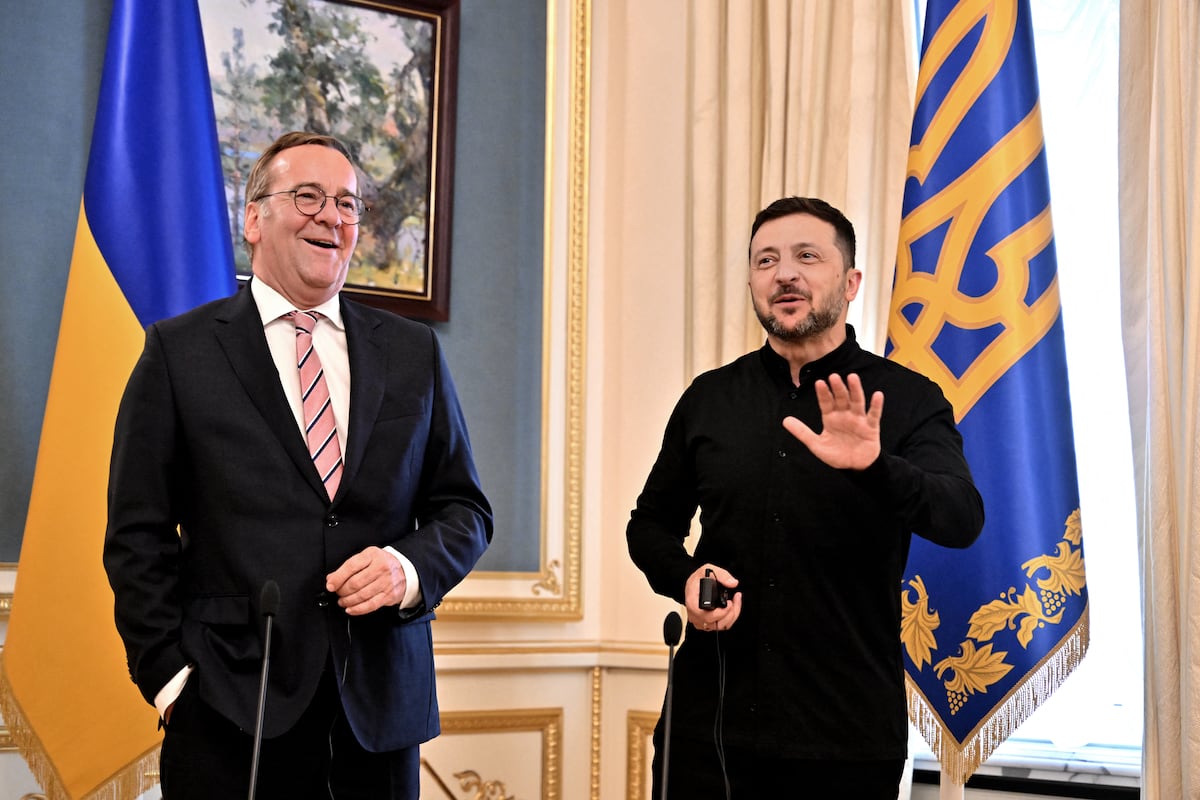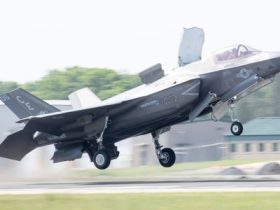THE HAGUE, Netherlands — Germany is on track to give €9 billion ($10.4 billion) in aid to Ukraine in 2025, maintaining the country’s position as one of Kyiv’s key backers.
The amount was announced by Berlin’s defense minister, Boris Pistorius, during his visit to Ukraine on June 12. It marks the fifth time that Pistorius has visited Kyiv since the outbreak of the war when Russia invaded its neighbor in February 2022.
Some of the forthcoming assistance will take the form of joint ventures between the German and Ukrainian military-industrial complexes, an idea that was presented earlier this year and has been pushed by Germany’s new conservative leadership. Joint defense production projects are in line to get €1.9 billion ($2.2 billion) of the overall funding. Part of the amount will be dedicated to financing long-range weapon systems that will be manufactured in Ukraine.
Under the arrangement, Germany will provide funding while Ukraine will contribute its battlefield-tested technological know-how. “The first systems should be available in the next few months,” Pistorius said during a joint press conference with Ukrainian President Zelenskyy, who in turn said that the joint venture was an expression of deep trust in Berlin.
Pistorius noted that “the picture of war has changed” from traditional tanks and jets to electromagnetic warfare and drone combat, making this technological exchange valuable for both countries. The Social Democratic defense minister, who has often been at odds with his own party, has pushed forcefully for German rearmament and a more prominent military posture on the world stage.
Also in Kyiv, Pistorius addressed a longstanding elephant in the room by saying that Germany was not planning to transfer its Taurus cruise missiles, widely considered one of the most advanced available, to Kyiv.
“Since you asked me whether we are considering this, my answer is no,” Pistorius told a journalist. The government of Chancellor Friedrich Merz had previously maintained a purposely ambiguous posture on the matter.
However, Germany will deliver more IRIS-T air defense systems to Ukraine. Zelenskyy stated that the assistance would be provided under a three-year plan, but said he would not provide further details. The Ukrainian president did, however, let slip that he expects Ukraine to localize the production of “very high-quality” German air defense systems, which may suggest a plan to produce the systems inside the country. Currently, IRIS-T air defense systems are made in Germany.
The supply plan builds on substantial existing contracts. In May, Ukraine and Germany signed a €2.2 billion ($2.54 billion) contract for IRIS-T systems and missiles, covering four complete surface-launched units with mobile launchers, radars, command centers, and missiles.
Air defense has been identified as one of the key priorities for Ukraine in light of relentless Russian strikes on Ukrainian cities using cruise missiles and drones.
Germany’s total aid in support of Ukraine amounts to €48 billion ($55.5 billion) since the start of the war, as of April 30, the government said in response to a parliamentary inquiry. Of that, €15.6 billion ($18 billion) was military assistance. Germany remains the largest supporter of Ukraine aside from the United States. Under Merz’s chancellorship, Berlin has stopped releasing detailed tallies of its military support to Kyiv, citing operational security.
Linus Höller is a Europe correspondent for Defense News. He covers international security and military developments across the continent. Linus holds a degree in journalism, political science and international studies, and is currently pursuing a master’s in nonproliferation and terrorism studies.
Read the full article here








Leave a Reply